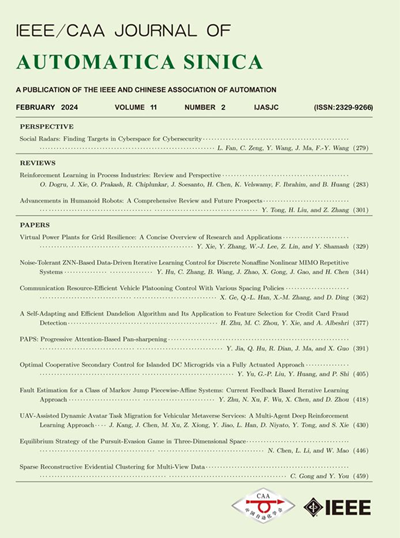When Software Security Meets Large Language Models: A Survey
IF 15.3
1区 计算机科学
Q1 AUTOMATION & CONTROL SYSTEMS
引用次数: 0
Abstract
Software security poses substantial risks to our society because software has become part of our life. Numerous techniques have been proposed to resolve or mitigate the impact of software security issues. Among them, software testing and analysis are two of the critical methods, which significantly benefit from the advancements in deep learning technologies. Due to the successful use of deep learning in software security, recently, researchers have explored the potential of using large language models (LLMs) in this area. In this paper, we systematically review the results focusing on LLMs in software security. We analyze the topics of fuzzing, unit test, program repair, bug reproduction, data-driven bug detection, and bug triage. We deconstruct these techniques into several stages and analyze how LLMs can be used in the stages. We also discuss the future directions of using LLMs in software security, including the future directions for the existing use of LLMs and extensions from conventional deep learning research.求助全文
约1分钟内获得全文
求助全文
来源期刊

Ieee-Caa Journal of Automatica Sinica
Engineering-Control and Systems Engineering
CiteScore
23.50
自引率
11.00%
发文量
880
期刊介绍:
The IEEE/CAA Journal of Automatica Sinica is a reputable journal that publishes high-quality papers in English on original theoretical/experimental research and development in the field of automation. The journal covers a wide range of topics including automatic control, artificial intelligence and intelligent control, systems theory and engineering, pattern recognition and intelligent systems, automation engineering and applications, information processing and information systems, network-based automation, robotics, sensing and measurement, and navigation, guidance, and control.
Additionally, the journal is abstracted/indexed in several prominent databases including SCIE (Science Citation Index Expanded), EI (Engineering Index), Inspec, Scopus, SCImago, DBLP, CNKI (China National Knowledge Infrastructure), CSCD (Chinese Science Citation Database), and IEEE Xplore.
 求助内容:
求助内容: 应助结果提醒方式:
应助结果提醒方式:


